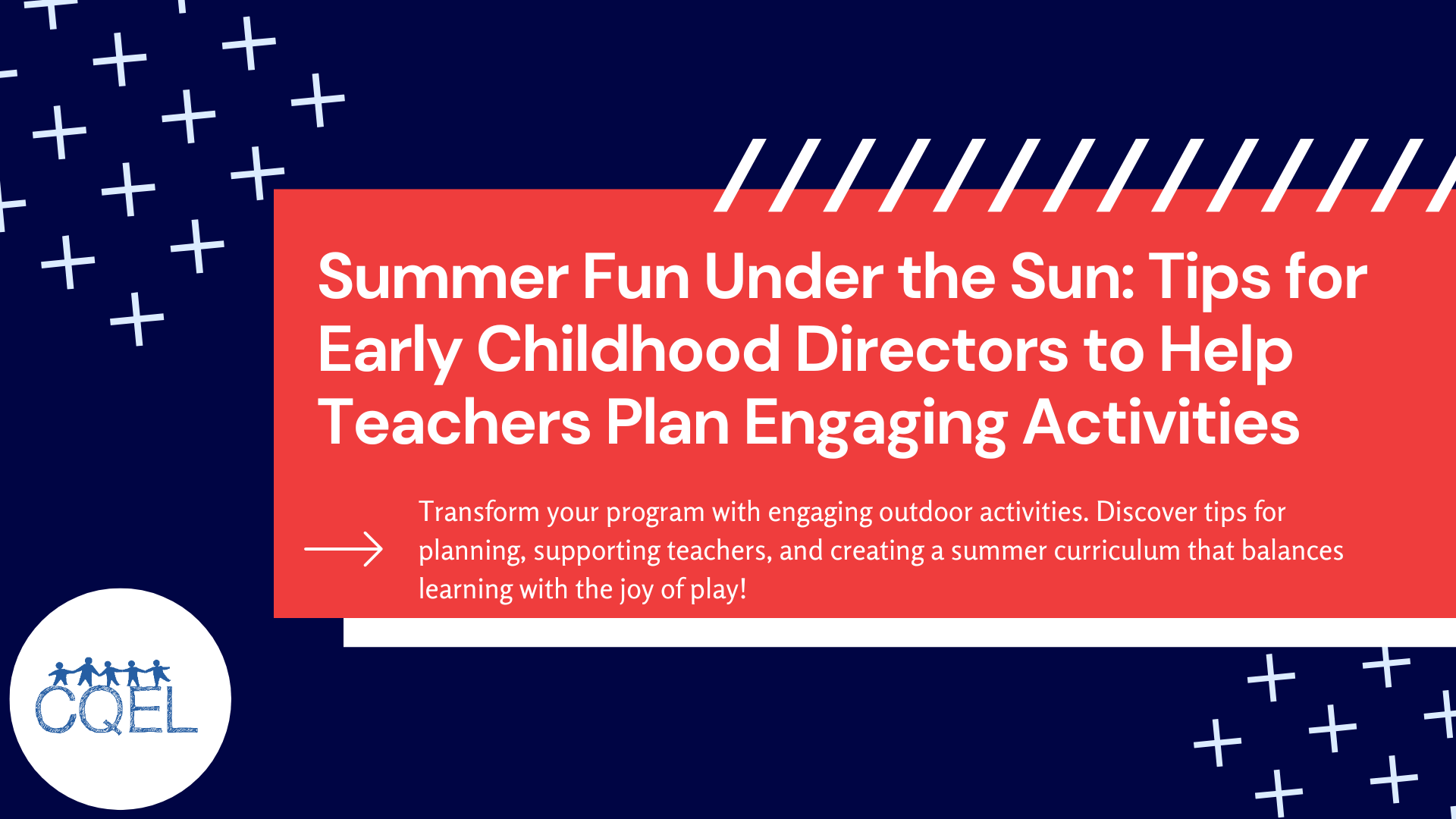Summer Fun Under the Sun: Tips for Early Childhood Directors to Help Teachers Plan Engaging Activities
Transform your program with engaging outdoor activities. Discover tips for planning, supporting teachers, and creating a summer curriculum that balances learning with the joy of play!

Summer in early childhood settings presents a unique opportunity to move beyond the walls of the classroom and embrace the joy of learning outdoors. As a childcare director in California, fostering a stimulating and enriching summer program is crucial. Your role goes beyond simply scheduling activities; it's about supporting teachers in planning engaging experiences that ignite children's curiosity and promote their development. The key lies in creating a balance between learning objectives and the inherent joy of summer – play!
California's sunshine provides a natural playground for summer learning. Embrace the outdoors by incorporating nature walks, where children can explore their senses, collect interesting rocks or leaves, and observe insects in their natural habitat. Water play, with a strong emphasis on safety measures like adult supervision and appropriate equipment, can be a source of endless summer fun and learning opportunities (think counting games or sorting toys by color). Consider setting up a sprinkler for a refreshing cool-down on hot days.
Thematic learning units can provide a captivating framework for summer programs. "Ocean Exploration" could involve sensory activities like creating ocean slime or building sandcastles. A "Backyard Olympics" theme might include water balloon relays, obstacle courses, or beanbag toss games, promoting teamwork and gross motor skills. "Art Around the World" offers opportunities to explore different cultures through music, crafts, and storytelling activities.
Encouraging your teachers to embrace creativity and explore new resources is essential. Professional development workshops focused on summer activities or engaging young learners can equip them with fresh ideas and strategies. Online platforms like Pinterest or early childhood education websites can be a treasure trove of inspiration for themed activities and crafts.
Remember, every child learns differently. Effective activity planning should cater to diverse learning styles and abilities. Incorporate open-ended materials like blocks, construction paper, and playdough that encourage creativity and problem-solving. Offer activities with varying levels of challenge to ensure each child feels successful and engaged. Collaborative planning sessions are a valuable tool. Facilitate brainstorming sessions where teachers can share ideas, adapt existing activities for different age groups, and ensure everyone has a voice in shaping the summer program.
Your support extends beyond brainstorming sessions. Offering professional development opportunities focused on summer activity planning and engaging young learners equips teachers with the skills and knowledge to translate vision into reality. Additionally, allocating necessary resources is key. Ensure teachers have access to materials and equipment needed to implement planned activities effectively.
A well-planned summer program doesn't exist in a vacuum. Aligning activities with California's Early Learning and Development Standards (https://www.cde.ca.gov/sp/cd/re/psfoundations.asp) ensures continuity in children's learning and reinforces key skills throughout the year. Implementing ongoing assessment and documentation practices allows you to track children's progress during the summer program and inform future planning decisions.
Finally, don't underestimate the power of family engagement. Sharing activity plans with parents keeps them informed and allows them to discuss upcoming themes at home. Consider family events or volunteer opportunities where parents can participate in some activities alongside their children. This collaborative approach strengthens the learning experience and creates joyful summer memories for all.
By fostering a supportive environment where teachers can thrive and implementing these planning tips, you can create a summer program that is both enriching and enjoyable for children. Remember, a well-designed summer program can bridge the gap between academic years, foster a love of learning, and leave children with lasting memories of a summer filled with fun and exploration.
Additional Resource
- California Department of Education: Early Learning and Development Standards: https://www.cde.ca.gov/sp/cd/re/psfoundations.asp
